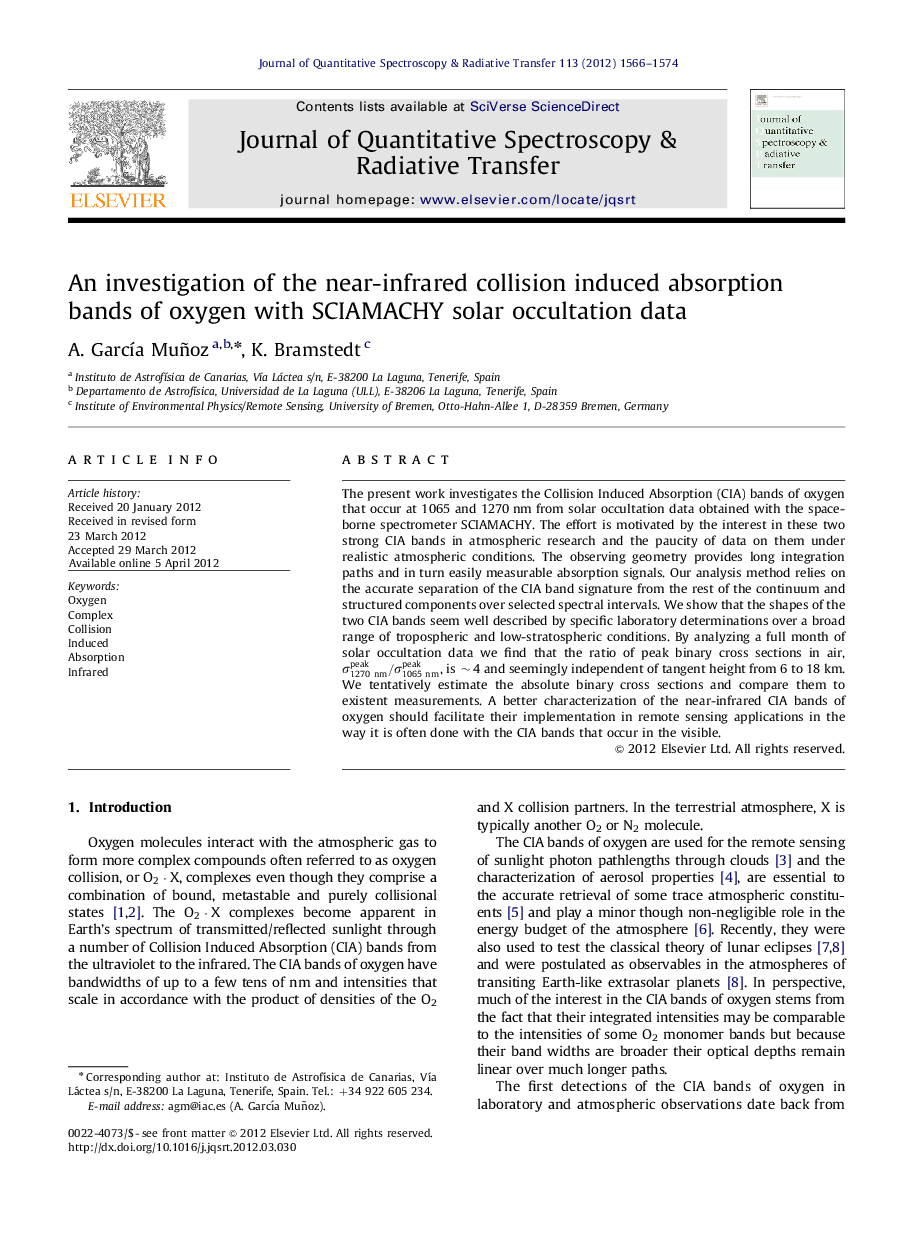| کد مقاله | کد نشریه | سال انتشار | مقاله انگلیسی | نسخه تمام متن |
|---|---|---|---|---|
| 5429354 | 1397347 | 2012 | 9 صفحه PDF | دانلود رایگان |

The present work investigates the Collision Induced Absorption (CIA) bands of oxygen that occur at 1065 and 1270Â nm from solar occultation data obtained with the space-borne spectrometer SCIAMACHY. The effort is motivated by the interest in these two strong CIA bands in atmospheric research and the paucity of data on them under realistic atmospheric conditions. The observing geometry provides long integration paths and in turn easily measurable absorption signals. Our analysis method relies on the accurate separation of the CIA band signature from the rest of the continuum and structured components over selected spectral intervals. We show that the shapes of the two CIA bands seem well described by specific laboratory determinations over a broad range of tropospheric and low-stratospheric conditions. By analyzing a full month of solar occultation data we find that the ratio of peak binary cross sections in air, Ï1270nmpeak/Ï1065nmpeak, is â¼4 and seemingly independent of tangent height from 6 to 18Â km. We tentatively estimate the absolute binary cross sections and compare them to existent measurements. A better characterization of the near-infrared CIA bands of oxygen should facilitate their implementation in remote sensing applications in the way it is often done with the CIA bands that occur in the visible.
⺠The near-infrared CIA bands of oxygen in Earth's atmosphere are investigated. ⺠Recommendations are given for the band shapes at 6-18 km heights. ⺠The ratio of peak binary cross sections in air at 1270 and 1065 nm is about 4. ⺠Laboratory work is still needed for absolutely calibrating the band intensities. ⺠The CIA band at 1065 nm appears as a promising option for remote sensing applications.
Journal: Journal of Quantitative Spectroscopy and Radiative Transfer - Volume 113, Issue 12, August 2012, Pages 1566-1574